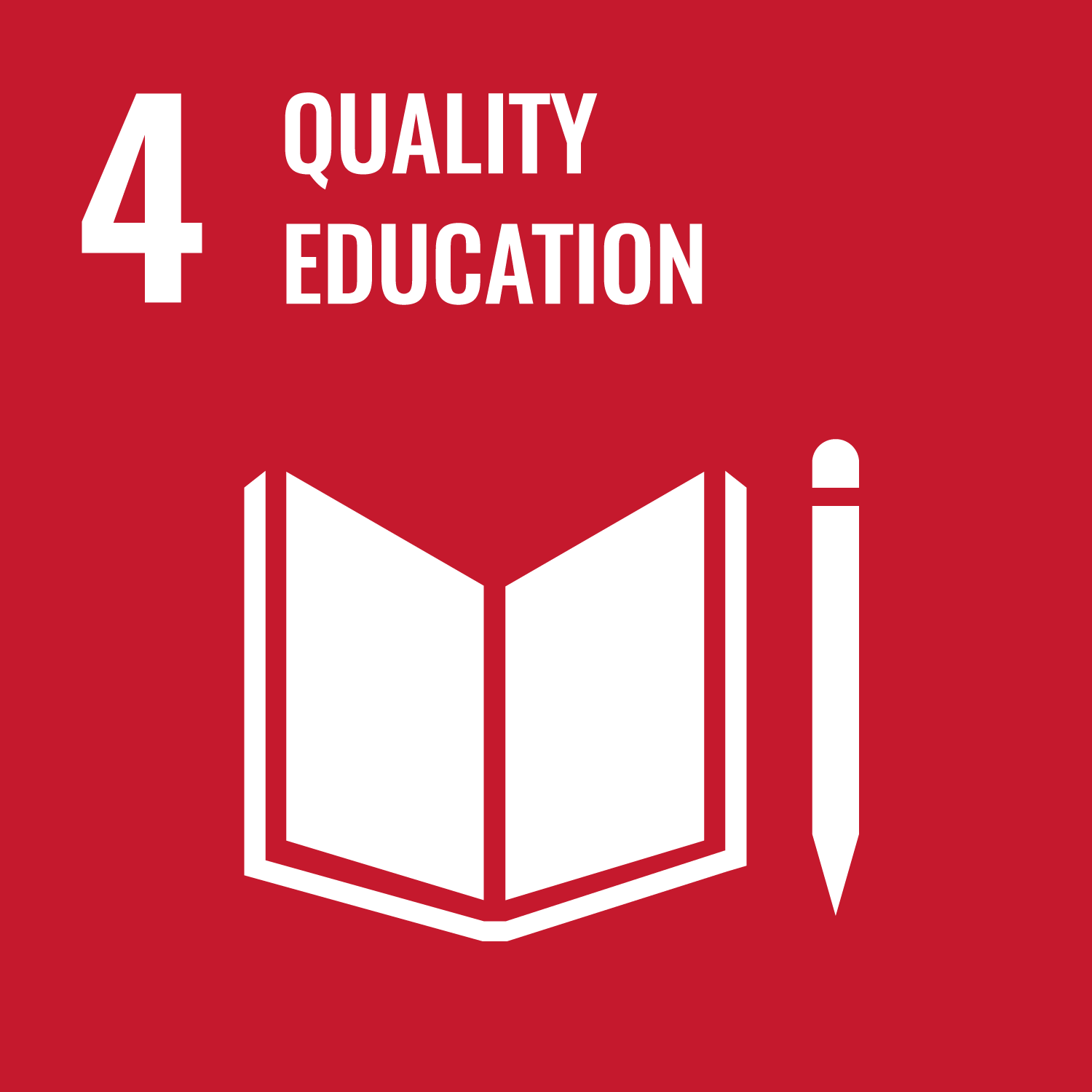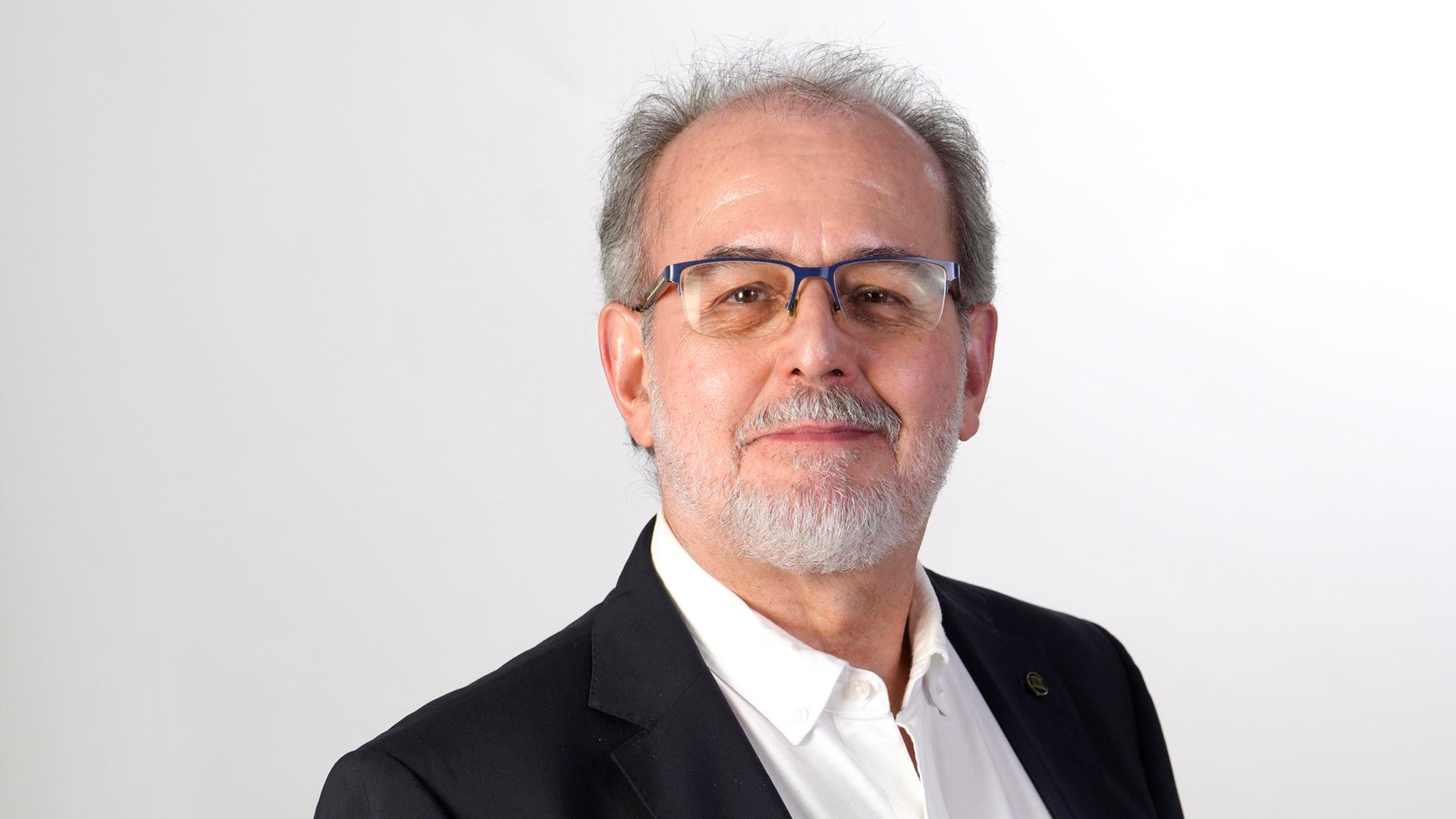"We need to reinforce students' critical and ethical thinking regarding the use of AI"
Albert Sangrà, professor and expert in e-learning

Albert Sangrà, professor and expert in e-learning
The rise of generative AI opens up a wide range of opportunities, but also poses challenges in the field of education. For Albert Sangrà, professor at the Faculty of Psychology and Education Sciences and director of the UNESCO Chair in Education and Technology for Social Change at the Universitat Oberta de Catalunya (UOC), this is the technology that has generated "the greatest impact on online education since the appearance of virtual learning environments". In this interview with the director of the new Education and E-learning Research Unit and researcher with the UOC's Research Group in Education and ICT (Edul@b), we talk about the positive and negative aspects of incorporating AI in online learning, and about research projects at the university designed to take advantage of this technology and generate solutions that help students and teaching staff.
Generative AI has impacted all sectors. What specific advances do you consider most disruptive in recent years in the field of e-learning?
The emergence of generative AI is possibly the new development that has generated the greatest impact on online education since the appearance of virtual learning environments (LMSs, platforms, virtual campuses, etc.). It opens up possibilities that have yet to be explored, and which will have to be put to the test. For example, it can provide support for teaching staff in the design of course plans and activities, in the creation and co-creation of learning resources, or in providing feedback, or support for students in decision-making, in the personalization of their pathways, etc.
What negative aspects or challenges has the incorporation of this technology led to? What can we do to overcome them?
The most immediate impact was an almost apocalyptic effect on assessment. We've seen an increase in the ease with which students can produce work with the help of generative AI tools. The need to take special care regarding academic fraud is what has attracted the most attention. However, we must also be aware of the ethical risks associated with possible bias of all kinds (race, gender, ideology, etc.) that can be generated by using these tools, and the potential errors they incorporate, often referred to as "hallucinations", a euphemistic way of saying "lies".
“A lack of training in digital skills could condemn many people to functional illiteracy ”
Do you think that incorporating these technologies in education systems will help to reduce the differences with developing countries, or increase them?
It all depends on how they're used. Tools are sometimes used as a mechanism to create differences. If tech companies increase their cost so that only the wealthiest can use them, it would be a flagrant case of social discrimination. However, if they are used equitably, if everyone is given the opportunity to use them, they can help reduce existing gaps. It should be noted, however, that alongside the economic factors there are also cognitive factors: the necessary training has to be provided so that they can be used properly. Today, a lack of training in digital skills could condemn many people to functional illiteracy in the years to come, leading to social effects on development.
How should teaching deal with the fact that, with generative AI, students have answers to almost any question in a matter of seconds?
Changing the way the question is asked. Changing what we ask them to do. We focus on assessment, when what really needs to change is the way in which we make them tackle the problems they have to solve. These problems should be solved with the help of generative AI, if necessary. We need to turn it into an ally and not an enemy. But to do so, we need to change the way we teach. Yes, I know that for some people this will be hard, but we have no other choice. Prohibition solves nothing; it's not a viable option.
What's your view on the use of this technology for more personalized learning and inclusion?
Again, it all depends on how it's used. If it benefits students and can be adapted to their needs and personalities, playing an active role, developing their critical and creative thinking, I think it could be a very useful tool. Above all, we need to avoid only providing students with individualized, automatic answers, without requiring them to analyse the answer and make decisions. Meanwhile, this technology can help teaching staff to develop learning resources that match students' needs and profiles more closely. It can also help prepare the feedback we need to give to students, improving the quality while reducing the teaching staff's workload. This is being investigated in some of the projects funded by the E-learning Research programme as part of the "Boosting research in e-learning" call.
What skills do students need to strengthen so they can play their part in a future job market where they will work with generative AI applications?
Discernment. It's not just about knowing how to use a tool or technology. It's also a matter of knowing when and why to use it. As I said before, above all we need to strengthen students' critical and ethical thinking, so that their use of AI makes sense and helps society to develop. We need to ensure that all students develop their digital skills to the fullest, an aspect in which the UOC is and always has been a pioneer.
Generative AI has raised even more doubts about traditional assessment methods. How should AI be approached from the perspective of assessment?
Personally, I don't think the problem lies in assessment, but in the didactic strategies we use when designing courses. We need to design activities and challenges with aspects that can't be resolved by submitting a question to a generative AI tool. We need to rethink how we make students work, what we ask of them, and what we want them to be able to do in order to acquire the skills they have to demonstrate. If we do this, the solution to assessment will come by itself, because we will not need the monitoring that has to be in place when an answer can be provided by asking the tool. Regardless of this, I believe that assessment needs to be increasingly diversified with varied assessment strategies, different people carrying out the assessment (self-assessment, peer assessment and external assessment) and different formats for collecting the information provided by the assessment, which is ultimately a decision-making process.
You're the director of the new Education and E-learning Research Unit, and previously you were director of the UOC's E-learning Research programme. What lines of work have you undertaken?
The E-learning Research programme has aimed to reinforce and promote research in the field of e-learning among all teaching and research staff, and enable us to share internally the work being done. In particular, this past year we've focused on promoting the use of the data available to the UOC, through the Virtual Campus, to bring about improvements in our students' learning. Maybe we'll be able to talk about the new research unit a little later, once we've organized its objectives with the research groups that make it up.
What would you consider some of your outstanding projects to be?
I would pick out the three projects that were funded by the "Boosting research in e-learning" call. The Asynchronous discussion evaluation with learning analytics (ADELA) project, coordinated by Teresa Romeu and Javier Luis Cánovas; Designing AI-based support mechanisms with analytical evidence (LISFEED), coordinated by David Bañeres and Anna Espasa, and Using generative AI to assist teachers in developing personalized, formative and quality feedback (FeedSmart), coordinated by Nati Cabrera and David García Solórzano.
I believe that all three perfectly illustrate the call's objective of encouraging interdisciplinary work with the data available to the UOC in order to move forward and generate solutions that help students and teaching staff.
Research at the UOC
Specializing in the digital realm, the UOC's research contributes to the construction of future society and the transformations required to tackle global challenges.
Over 500 researchers and more than 50 research groups make up five research units, each with a mission: Culture for a critical society, Lifelong education, Digital health and planetary well-being, Ethical and human-centred technology and Digital transition and sustainability.
The university's Hubbik platform fosters the development of UOC community knowledge transfer and entrepreneurship initiatives.
The goals of the United Nations 2030 Agenda for Sustainable Development and open knowledge are strategic pillars that underpin the UOC's teaching, research and knowledge transfer activities. For more information, visit research.uoc.edu.
Albert Sangrà's research is aligned with the UOC's research missions for lifelong education, and ethical and human-centred technology. It also contributes to UN Sustainable Development Goal (SDG) 4, Quality Education.
Press contact
-
Leyre Artiz


